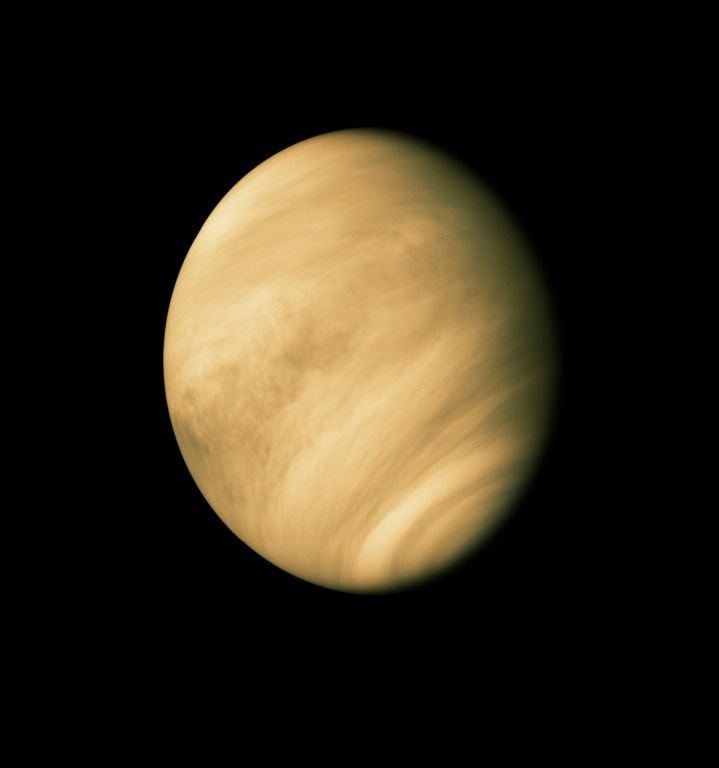‘Gas-find linked to life on Venus’: NASA lauds discovery, hopes to set on E.T hunt
Wed 16 Sep 2020
The atmosphere of Venus contains a gas that on Earth can be attributed to living organisms, scientists said Monday, a discovery the head of NASA called “the most significant development yet” in the hunt for extraterrestrial life.
Conditions on our planetary neighbour are often described as hellish with daytime temperatures hot enough to melt lead and an atmosphere composed almost entirely of carbon dioxide.
However, a team of experts detected traces of phosphine, a flammable gas that on Earth often occurs from the breakdown of organic matter.
They used telescopes in Hawaii and Chile’s Atacama Desert to observe Venus’ upper cloud deck, around 60 kilometres from the surface.
Writing in Nature Astronomy, the team stressed the presence of phosphine did not prove the presence of life on Venus.
“Even if a planet was abundant in phosphorus, it might lack something else important to life — some other element, or conditions might be too hot, too dry,” Jane Greaves, lead author from Cardiff University’s School of Physics and Astronomy said to AFP.
But, as the clouds swirling about its broiling surface are highly acidic and therefore destroy phosphine very quickly, the research did show that something was creating it anew.
Greaves also added that it was the first time phosphine had been found on a rocky planet other than Earth.
Currently, the bulk of efforts to look for past extraterrestrial life focus on Mars, which is known to have once contained all the necessary ingredients to support carbon-based organisms.
The US and China recently sent rovers to the Red Planet, while the UAE sent an atmospheric probe.

 Apr 26 2024
Apr 26 2024













